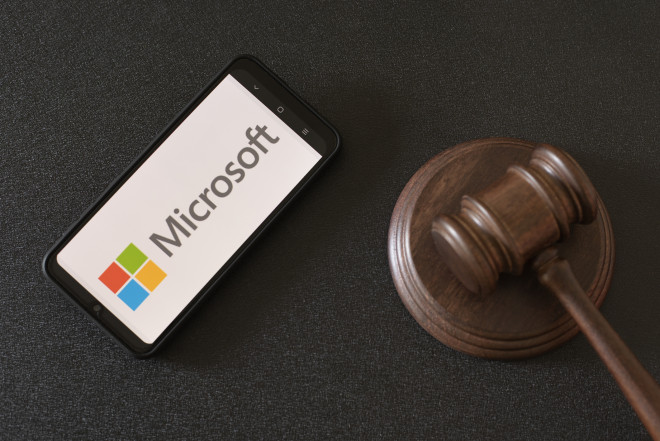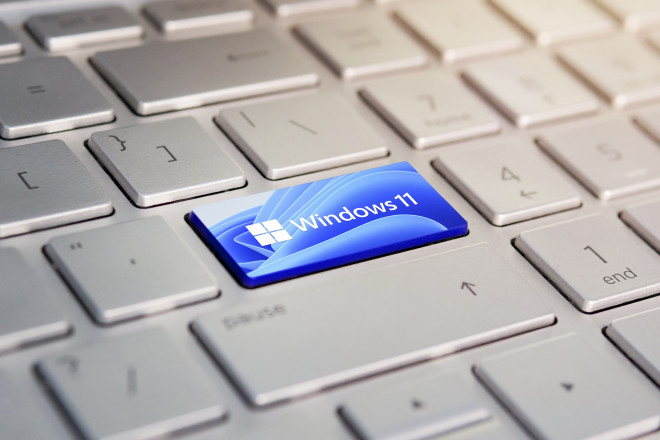With unusually peskiness, Microsoft is currently trying to establish its Edge as the browser of choice in Windows 11. Unless you agree (which seems to be a minority), you'll now have to wrestle with checkboxes and frequent popups. Changing the default setting has been deliberately made harder for users. While Windows 10 had begging-like notifications to switch to the allegedly much faster and safer Edge, the thumb screws have been tightened in Windows 11. Naturally, you can still install alternative browsers and make minor adjustments, but Edge has now become the only choice in some scenarios!

Déjà-vu anyone?
For 25 years, Microsoft has tried to establish Internet Explorer as the dominant web browser–with very mixed success. Initially a rival to the then dominant Netscape Navigator in 1995, the browser quickly rose in popularity. Back then, Internet Explorer often miraculously became the default system browser again as soon as new Windows updates were installed–with or without user consent. Then, the "browser wars" began which sparked a wave of lawsuits and out of court settlements. Microsoft frequently paid hefty sums of money to calm the waves, with almost 750 million dollars going to bitter rival Netscape. In 2010, the EU's anti-trust agency even forced Microsoft to offer alternative browsers during Windows installations. When Microsoft (accidentally) strayed from this line with a Windows 7 service pack, they were fined another 561 million. The stipulation went out of effect in 2014, but the risk of fines remains. Both competitors and watchdog groups therefore have a critical eye on Windows 11 and Microsoft's two-fold role as both creator of Windows and the strategically important Edge.
The perfect browser to find a replacement
Microsoft knows only too well that Internet Explorer or Edge are only used to download and install alternatives by many users. Once installed, access to precious web-related user data and chances to push the ill-fated Bing is lost. Still, the justification for the latest shady move is as flimsy as it is predictable: It supposedly fixes an issue where OS functionality could be improperly redirected. The goal is said to offer certain end to end customer experiences in both Windows 10 (!) and Windows 11. So ordinary features become "OS features" and no longer have to be subjected to user control–in the name of security and reliability, naturally. In practice, this means users that use the search field in the Windows taskbar can only search with Edge, as everything else would require an improper redirect. And the reinstated widgets in Windows 11, that frequently offer links to additional information and settings, also rely on, you guessed it, Edge!
 Anti-trust officials and rivals are ready to pounce
Anti-trust officials and rivals are ready to pounce
Default and system browser
So far, there has been no real, or believable, clarification as to the horrible disadvantages a switch to Chrome, Opera and Firefox would entail from Microsoft. Tools like EdgeDeflector can mitigate the issue but they will be blocked with future updates! The option to set Firefox as the default browser in a single click will then also be no longer available. Microsoft even plans to go one step further: As a user, you're free to pick your browser of choice but, for "system-specific" tasks, the system will make its own decision–in favor of Edge, of course! All web-based queries triggered by the OS, its widgets and even default Windows apps will be channeled through Edge–Microsoft even uses "microsoft-edge://" instead of "https://" to make sure no other browser stands a chance! This alienating dichotomy begs the question of how much the balance between the OS serving its users and its users serving the OS (maker) has shifted. Is there an imminent technological requirement for an OS to rely on a specific browser even in the presence of alternatives with feature parity?
Is Edge the second-best choice?
To be fair, Edge is not a bad browser–not because of Microsoft's genius programming but because it is based on Chromiu I, as is the case with Opera and many others. Still, Edge has its own distinct design/flair, feels faster than other browser (e.e. Firefox), features about the save level of security as Chrome, and boasts full compatibility in terms of extensions. You're not making a horrible mistake using Edge but users just don't seem to care much about it globally, which accounts for the meager 7% market share. Take away the many business users who are treated to Edge thanks to somewhat lazy admins and the number of users who have an active interest in the product dwindles even more.

The future
Microsoft seems to be back to its (well-known and dangerous) ways. Windows 11 was met with somewhat positive reviews, the buck is currently with other more prominent "evil doers" (Facebook) so Microsoft could simply carry on as before and keep converting existing users with great features and new ideas. Instead, users are being forced to warm up to Edge–and watchdogs and anti-trust officials are being forced to get back in touch with their lawyers for another round. Arbitrarily adding common features to the "OS-specific" bracket in the hope of intimidating users towards blind acceptance is a nasty move. Rest assured, your PC won't explode if you open web widget settings in Chrome instead of Edge, so no worries!
Thankfully,users aren't generally incompetent or ignorant and won't eagerly lap up without demur whatever Microsoft puts out these days. Experts therefore do not predict a meteoric rise in adoption rates for Edge but a steady increase in unnecessarily frustrated Windows users.
What I would like to know: Are you willing to give Edge (another) chance?




Dear Sven,
Thanks for another interesting & poignant column.
As to your question:
Truth be told, I am using Edge on a regular basis, but only after I somewhat "hardened" it (as I did with all browsers I've been using since 1994).
I find it quite pleasant (and yes, I did replace the default Bing searching engine, and got the New Tab's "Microsoft-full-of-news" New Tab out of my sight.
This is not to say I am not taking advantage of other browsers (Chrome, Firefox, Vivaldi and - at very distant times, and only when nothing but it can do the job - Internet Explorer). Each has some specific strength or ability to use a very niche extension that the others might not.
Having said all of the above, I very much doubt the current (déjà vu) move on Microsoft's part is going to be met with cheers - no one likes her\his hand being forced into doing something (not even something they would anyway have done of their own choice!).
Providing Edge with features to make it stand from all (most?) points of view heads and shoulders above the competition, could have gone a long way towards improving MS's PR image and getting Edge a larger share of the market (just see how Chrome gained pull, from almost unknown to the de-facto standard by which everyone else is judged; not that Chrome is not a magnet for criticism as well, though not for its productive features ...).
Let's hope we'll not have to witness more attorney fights and regulators fines before all this is ironed out.
Keep the good stuff coming,
Eric
I like and have used Chrome for many years. Previously Firefox was my choice many years ago when it was still in the early development stages as it was faster than IE. But it became quite unstable to often.
Then I became aware of Chrome and have been satisfied ever since. I have tried Edge (accidently!) and it doesn't compare to Chrome in my opinion. But more importantly, I resist being coerced by Microsoft and will resist all attempts to force me to change, just on principle alone.
Unless of course they can legitimately demonstrate substantial benefits over Chrome.
THE SOLUTION IS TO COPY CHROM FILES OVER EDGE FILES (BUT WITHOUT CHANGE THEIR FILE NAMES - JUST THEIR CONTENTS).
NO!
No, I am not. I'll do whatever it takes to keep using Firefox as my main browser and Chrome as my backup browser (when a website doesn't render correctly in Firefox).
If I am bullied into using a program I do not want and use, I will have 2 options.
1) Rather use Linux
2) Stay wih Windows 10
I for one do not use, or like, Edge. It always seems to do what IT wants, not what I want it to do. My browser of choice is a fork off of Firefox called Waterfox. It's simply a browser that let's me do what I want and when I want it. I don't seem to get any 'online' attacks that have to be thwarted either. And while on the topic on anonymity I also don't receive the constant SPAM emails from sites that I may, or may not have, looked at while browsing the Internet. I'm an older, more matured person, that doesn't like all the 'fluff' that is being put into software products nowadays!
Go ahead, call be a "boomer", I love it!
They ms are using popups (unwanted).
Search takes me to places they want me to go.
Are they trying to control my every move?
Chrome has far better search.
I'm not too bothered about which browser I use these days. For most users, browsers perform similar functions and, as for performance, there's not much to choose from these days. I'm using Edge because it's convenient and secure, but I know how to switch the default browser if I wish to switch to, say, Firefox or one of the others.
I have installed Windows 11 on one of my PCs and I am using edge. I feel forced to use edge and I don't like edge or being forced to use edge. I much prefer using Vivaldi. I hope someone young, with a lot of energy and a lot of money, will file a class-action lawsuit against Microsoft and put a stop to their bullying. I am 74 years old and have neither a lot of money nor energy.
One saving grace throughout the world are the sundry individuals who find out a better way. The world is a better place as dictators are exposed for who they are!
I have been a Windows person since 1992. I have never been a fan of IE (Internet explorer), because it was always crashing. I tries it several years ago just to see how it is now, after years or decades since I used it and it stilled crashed.
I do not plan to upgrade to 11, I'll stay on 10 and then switch to a Mac.
That depends; does it still have Bing? If so, that's definitely a NO!
Other than its really quirky, clumsy "favorites" handling, and refusal to cooperate with Last Pass, I'm very happy with Opera. Faster than Firefox, Pale Moon, and Edge.
VERY happy with most of Ashampoo's products, except that the 2021 Excel clone lacks some of the features in Excel 2007. The Win Optimizer is outstanding.
Wish I had the technical competence to run Linux. Can't wait for Ashampoo to offer an OS.
Yep, this is why I switched to Linux.
I find the current incarnation of edge to be slow, unresponsive and cumbersome to use. And that is on a new win 10 machine put in service 3 NOV. Chrome is nearly as sluggish on the same machine and opera just doesn't play well with others leaving firefox which, for now seems to work the best for me
I use several browsers with windows 11 and see no problem 'Edge' however I do have problem with 'Bing' which not a very good search tool. It is the default search engine in 'Edge' You can switch too 'Google' search engine but relegates it to the 'Web/search' Address bar and not the search bar.
... I'm just an ordinary user, but I agree with the author ... Edge is not bad, but I'm used to G Chrome and Edge doesn't replace a lot of improvements and tools, it's not as comfortable as I'm used to. And I doubt that Edge will take such a huge step forward in W11 .... "fortunately" Microsoft has combined it with W11 ... how many users will want to invest in a new computer? ... it's not talked about, it's just that how the W111 is revolutionary and great, but, it's worth the money ... I don't think for ordinary users ...